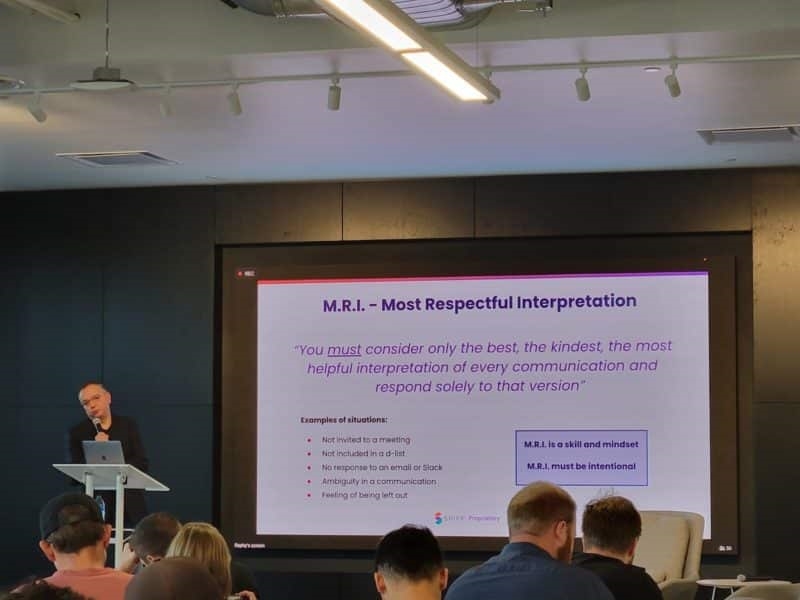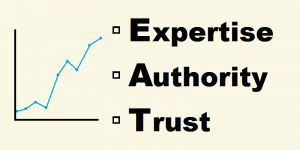Applying the “Most Respectful Interpretation” principle is a must for martech practitioners dealing with various stakeholders. Here’s why.
Recently, I attended an event hosted by the product management group Product Hive here in Utah that featured Spiff (a B2B SaaS company offering sales commission management software) Chief Product Officer Raphael Bres.
Bres spent a lot of his presentation focusing on interpersonal and leadership skills, which reveals how important he considers them for product management.
One such skill is employing the Most Respectful Interpretation (MRI) principle which he defines as:
“You must consider only the best, the kindest, the most helpful interpretation of every communication and respond solely to that version.”
It is profound.

Why martech practitioners need MRI
Marketing technology practitioners definitely have a need for this principle as they’re movers and shakers who are always affecting their colleagues.
I recall a recent item that highlights this. Spence Darrington recently shared some insights about helping CMOs better harness their marketing operations teams.
His column got a response from several marketing operations folks who were flustered by senior leaders with unrealistic and/or constantly changing expectations. We’ve all been there.
This response validated Darrington’s goal — helping senior leaders better understand how their actions affect marketing operations teams. It’s important to remember, while marketing technology practitioners need to give some grace to their superiors and colleagues, that doesn’t mean they should refrain from asserting themselves .
There are many benefits to MRI, and we as a community could certainly use them. These benefits include:
- Better relationships with our colleagues.
- A more collaborative reputation than a dream-killing one.
- A higher chance that people will engage us earlier on in projects that will eventually involve us.
All this will make things easier for all involved.
Assuming the best vs. looking for undermining forces
I can attest that employing this principle leads to more personal peace, which Bres also mentioned during. When we take things less personally and are not constantly looking for undermining forces, we are happier.
Further, if we look for offense as well as enemies/frenemies, we’ll find them in spades. Avoiding that enables us to work more productively and see things more clearly. It also demonstrates a more welcoming, open-minded personality. This invites people to partner with us instead of repelling them as they expect us to say no or slow things down.
Our jobs are focused on technology: enabling systems users, selecting and operating superb platforms, optimizing integrations, saving money and delivering quality leads. However, it’s the soft skill of maintaining positive relationships that will yield higher dividends.
Relationships over tools
It is pretty common when discussing how as practitioners we can confront human nature to recommend various tools and strategies. Such recommendations come from various fields like change management, project management, management and organizational behavior.
These tools and strategies are helpful and useful. However, who hasn’t employed a tried-and-tested tool or strategy only to have someone foil it?
I have. That’s why I know they are not a substitute for maintaining positive relationships.
Just as being nice alone won’t lead to success, neither will having an updated, accessible, highly visible and sufficiently bought-in kanban board get everyone to commit to it. Relationships matter.
Strike the balance between kindness and weakness
Giving people the benefit of the doubt and assuming the best in our interactions doesn’t mean we should operate as doormats. We must respectfully stand up for ourselves and our perspectives developed from our expertise and experience.
However, we need to influence others through genuinely positive persuasion. This way our colleagues will more likely view us as partners. Along these lines, Bres shared some statements. Two of them are:
- “Be strong but not rude.”
- “Be kind but not weak.”
Striking this balance is not easy but ultimately is worth the struggle.
Here’s the thing. Regardless if we’re employed in-house, serving agency clients or are solo practitioners advising others, we do not succeed alone. We rely upon others to do their part.
Thus, striving to maintain positive relationships with others only boosts the chances of our own success.
The post The MRI principle: Why it’s beneficial for martech practitioners appeared first on MarTech.
(23)










